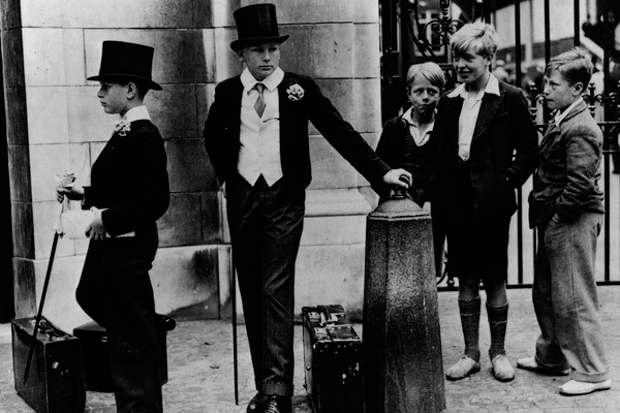From ‘The New Standard‘, The Spectator, 31 July 1915:
Where food and service are concerned we believe there are a fair number of people who will be glad of some necessity which shall compel them to lead a simpler life. It is not that they do not enjoy their fine food and the ease which comes of much waiting-on. They like it far too well voluntarily to relinquish it: On the other hand, the prospect of being obliged to do differently is not without attraction. The burden of “the plant” often wearies them. They feel themselves to be entangled in the paraphernalia of hyper-civilization—almost enslaved by it. It is odd that this time of enforced retrenchment should accomplish an enfranchisement, but we believe that after the war it will in many cases do so. If a change must be made at all, it is worth while to make a great change, to put right our mistakes, to get any happiness that a rearrangement can give us. We fear that at first a new way of life may come rather hard upon the more prosperous and highly skilled of the servant class, many of whom must be turned out of place. But, on the other hand, we hear constant complaints that servants are scarce because new careers are opening before women, and if the race of indoor manservants died out altogether we do not imagine that any one would seriously regret the loss of a not very valuable type. If the excessive luxury in women’s dress which has of late years transfigured the London shops were to be once more confined to the really rich, if necessity were to set a sumptuary fashion and the hands of fashion’s clock were to go back a few decades, could such a change be widely regretted?






Comments